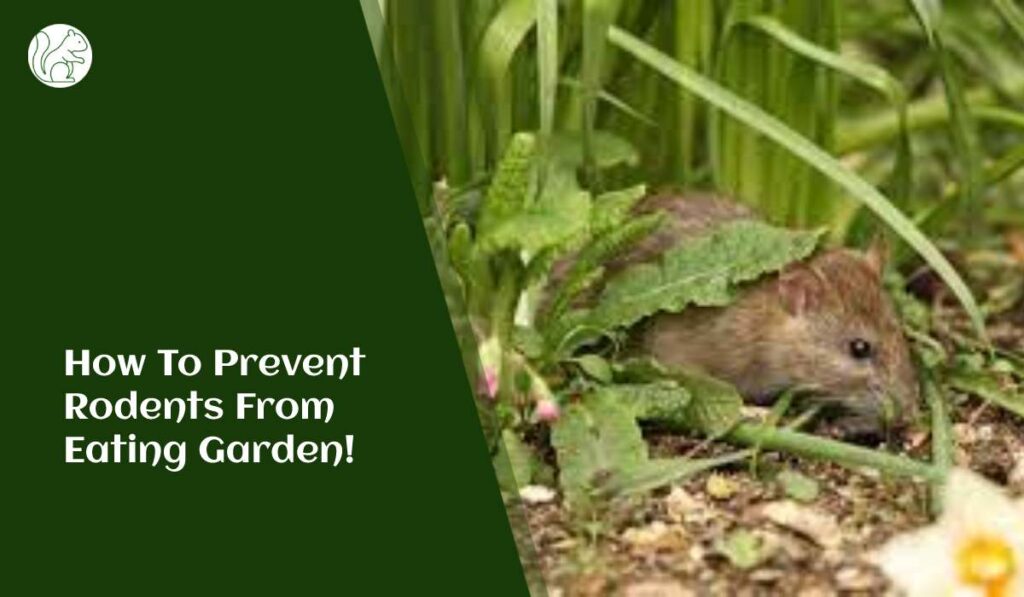Gardening is a great way to relax, get some exercise, and even provide fresh produce for your family. However, nothing is more frustrating than discovering that rodents have made a meal out of your hard work. Not only can rodents cause significant damage to your garden, but they can also carry diseases that are harmful to humans and pets. In this article, we will explore some effective ways to prevent rodents from eating your garden.

Understanding Rodent Behavior
Before we dive into preventative measures, it is important to understand why rodents are attracted to your garden in the first place. Rodents are opportunistic feeders and will eat almost anything they can find, including fruits, vegetables, and even flowers. They are attracted to areas with a lot of food and shelter, which is why gardens can be so appealing.
Rodents are also skilled climbers and burrowers, which means they can easily access your garden from above or below ground. They are most active at night and tend to be more active during the cooler months.
Natural Repellents
One effective way to prevent rodents from eating your garden is by using natural repellents. Many rodents have a strong sense of smell, and certain scents can deter them from entering your garden.
Peppermint oil is one natural repellent that rodents find offensive. To use peppermint oil in your garden, simply dilute it with water and spray it around the perimeter of your garden. You can also soak cotton balls in peppermint oil and place them in strategic locations throughout your garden.
Another natural repellent that can be effective is hot pepper spray. To make hot pepper spray, mix one tablespoon of hot pepper flakes with one quart of water and a few drops of dish soap. Let the mixture sit overnight, then strain it and spray it around your garden.
Physical Barriers
Physical barriers can also be effective in preventing rodents from entering your garden. One popular option is to use chicken wire or hardware cloth to create a fence around your garden. Be sure to bury the fence at least 6 inches deep to prevent rodents from burrowing underneath it.
You can also use row covers to protect your plants from rodents. Row covers are lightweight, breathable fabrics that can be placed over your plants to protect them from pests. They allow sunlight and water to pass through while keeping rodents and other pests out.
Traps
If natural repellents and physical barriers are not enough, traps can be an effective way to remove rodents from your garden. There are several types of traps available, including snap traps, live traps, and glue traps.
Snap traps are the most common type of trap and are designed to kill the rodent quickly and humanely. Live traps are also available and allow you to catch the rodent and release it elsewhere. Glue traps are another option, but they are not recommended as they can be inhumane and often result in a slow and painful death for the rodent.
Proper Garden Maintenance
Proper garden maintenance can also go a long way in preventing rodents from eating your garden. Rodents are attracted to areas with a lot of food and shelter, so keeping your garden tidy and free of debris can help deter them.
Be sure to remove any fallen fruits or vegetables from the ground and dispose of them properly. Keep your garden free of weeds and overgrown vegetation, as this can provide shelter for rodents. Consider using raised garden beds, as this can make it more difficult for rodents to access your plants.
Conclusion
In conclusion, protecting your garden from rodent invasions is not only possible but can be achieved with a strategic, multi-faceted approach. From maintaining good garden hygiene and employing natural deterrents to using fencing and traps, various methods exist to help safeguard your hard-earned garden bounty.
It’s crucial to remember that each garden and rodent situation is unique, so a combination of techniques may need to be used and adjusted over time for effectiveness. It’s also essential to keep a keen eye on your garden, as early detection of a rodent presence is the key to preventing a full-blown infestation.
While rodents can be tenacious in their quest for food, consistent and sustained preventative measures can help keep your garden flourishing and free from these unwanted visitors. Through patience, diligence, and an understanding of rodent behaviors, you can ensure your garden remains a haven for you and the plants you nurture, and not a feeding ground for rodents.
